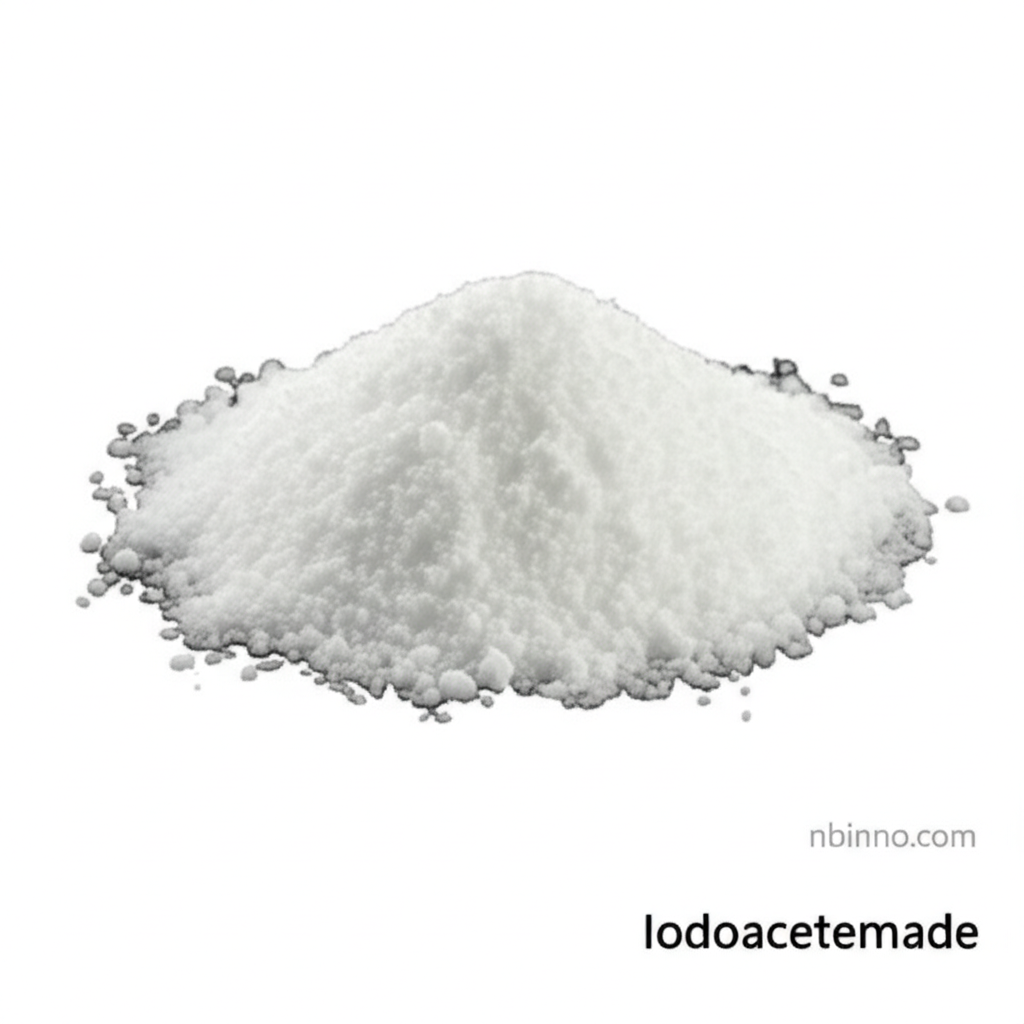Iodoacetamide CAS 144-48-9: Your Key to Advanced Protein Modification
Unlock precise protein analysis with this essential alkylating agent for cysteine modification and disulfide bond prevention.
Get a Quote & SampleProduct Core Value

Iodoacetamide
Iodoacetamide (CAS 144-48-9) is a vital chemical compound utilized extensively as an alkylating agent in the fields of biochemistry and proteomics. Its primary function is the precise modification of cysteine residues within protein structures. By selectively reacting with the thiol group (-SH) of cysteine, it forms a stable covalent bond, effectively blocking these residues. This crucial action prevents unwanted disulfide bond formation and other oxidative reactions that can interfere with accurate protein analysis.
- Explore the power of iodoacetamide for precise protein modification, ensuring your samples are prepped for accurate analysis.
- Discover how this alkylating agent is essential for iodoacetamide cysteine residues modification, a cornerstone of modern proteomics research.
- Learn how preventing disulfide bond formation using iodoacetamide can significantly improve the reliability of your experimental outcomes.
- Understand the application of iodoacetamide thiol modification in advanced biochemical studies and peptide mapping.
Advantages You Gain
Enhanced Proteomics Accuracy
Leverage iodoacetamide in your proteomics research to ensure accurate identification and quantification of cysteine-containing peptides, leading to more reliable data.
Streamlined Protein Analysis
Utilize iodoacetamide to prevent disulfide bond formation, simplifying complex protein samples and streamlining workflows for gel electrophoresis and mass spectrometry.
Targeted Cysteine Modification
Benefit from the specific reactivity of iodoacetamide with cysteine residues, allowing for targeted modification and a deeper understanding of protein structure and function.
Key Applications
Protein Modification
Iodoacetamide serves as a crucial reagent for the targeted modification of cysteine residues in proteins, a fundamental step in many biochemical studies.
Peptide Mapping
Its ability to alkylate cysteine residues makes iodoacetamide invaluable for peptide mapping, aiding in the sequencing and structural elucidation of proteins.
Proteomics Research
In proteomics research, iodoacetamide is extensively used to block thiol groups, ensuring sample integrity and enabling accurate mass spectrometry analysis.
Disulfide Bond Prevention
By reacting with free thiols, iodoacetamide effectively prevents the formation of disulfide bonds, which is critical for studying protein folding and stability.
